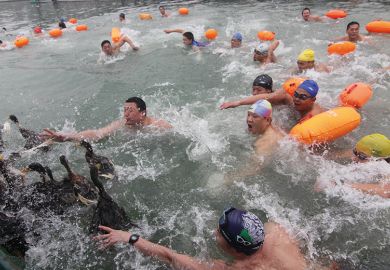International education is more a pleasurable than profitable pursuit for foreigners who study in Australian universities, although the UK fares worse, a survey suggests.
A survey of almost 6,000 Asian graduates of Australian institutions found that most had enjoyed themselves, with 86 per cent expressing satisfaction with the international experience. But almost one-third believed that it was not money well spent, with just 69 per cent awarding positive ratings for return on investment.
The findings come from a broader survey of almost 17,000 students, mostly from Malaysia, Indonesia, Vietnam and India, who graduated from Western universities over the past two decades. It was conducted by Cturtle, an employment agency for international graduates.
Australia rated below New Zealand, continental Europe and North America in terms of return on investment, with only the UK faring worse.
Cturtle chief executive Shane Dillon said that marketing by Australian and UK universities tended to be “somewhat misleading” about salary expectations.
Some universities did not acknowledge that their “messaging” about MBA students’ future earnings was based on data from domestic rather than international graduates, he said.
Mr Dillon added that Southeast Asian students might return home to command salaries several times higher than most local graduates, “but not the hundred grand you thought you were going to get”.
“It’s like a hotel. If you’re promised four-star and you get four-star, you’re happy,” he continued. “If you’re promised five-star and you get four-star, you’re not happy.”
Chinese graduates bucked the trend, awarding 100 per cent ratings for return on investment but just 85 per cent for the experience in Australia. Mr Dillon speculated that some Chinese graduates had been frustrated about studying in classes dominated by their countryfolk, but the experience had paid off when they returned home to a booming economy.
He said it was no surprise that North American universities rated well on post-graduation support, given the “tribal” loyalty of their alumni. Asian graduates of American universities attended international education fairs wearing their alma maters’ insignia, he pointed out. “No one coming from Australia does that.”
But Mr Dillon said that Australian universities could improve their support services for international students by focusing more on employment opportunities in their home countries rather than Australia.
Just 8 per cent of respondents who had studied in Australia and New Zealand were still there when they completed this year’s survey. Mr Dillon said that services for international graduates were typically designed around the needs of the “5 or 6 per cent who stay”.
“If you had better support for those who return home, that’s a more effective allocation of resources to improve the satisfaction rate of the students, and the likelihood that they’re going to recommend the university,” he added.
Globally, the survey found that recent graduates of branch campuses in Asia earned 38 per cent more than those who had studied at Western institutions’ home campuses. While the earnings gap narrowed over time, branch campus graduates were still earning 19 per cent more a decade or so later.
Mr Dillon said that this was because students at branch campuses were better able to keep abreast of employment networks at home, even if they were attending universities in neighbouring countries, than students in distant Western nations.
“Everyone knows intuitively that most jobs aren’t advertised – you get jobs through who you know,” he said. “If you’ve been in Australia for three or four years, you’re not really that connected any more.”
Register to continue
Why register?
- Registration is free and only takes a moment
- Once registered, you can read 3 articles a month
- Sign up for our newsletter
Subscribe
Or subscribe for unlimited access to:
- Unlimited access to news, views, insights & reviews
- Digital editions
- Digital access to THE’s university and college rankings analysis
Already registered or a current subscriber?








